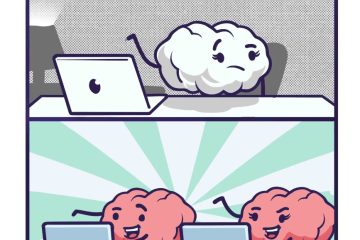What is neurodivergent burnout?
Neurodivergent burnout is a state of intense mental, emotional, and physical exhaustion experienced by a broad array of neurodivergent individuals. Unlike general burnout, which might result from work overload or stress, neurodivergent burnout is deeply tied to the experience of navigating a world not built with neurodivergent needs in mind. It can be triggered by masking (suppressing or hiding neurodivergent traits), sensory overload, chronic stress, and the pressure to meet neurotypical standards.
Neurodivergent burnout is more than just being tired: it’s a complete depletion of resources, where even basic tasks can feel impossible, and recovery can take days, weeks or even months.
What are the signs?
While burnout looks different for everyone, common signs include:
- Exhaustion (mental, emotional, and physical)
- Increased sensory sensitivity or difficulty managing sensory input
- Shutdowns or meltdowns
- Difficulty with communication, speaking, writing, or processing language may become harder
- Loss of executive functioning – struggling with planning, memory, focus, or decision-making
- Heightened anxiety or irritability
- Depression-like symptoms, such as low mood, numbness, or disconnection
- Loss of interest in hobbies or routines that usually bring comfort
- Loss of skills like socialising or keeping up with basic routines
Burnout can differ from person to person
Neurodivergence isn’t a one-size-fits-all thing. People experience the world differently depending on their specific neurotype, environment, support systems, and coping mechanisms.
For instance, an autistic person might experience burnout due to prolonged masking, social demands, and sensory overwhelm. For them, burnout may feel like a complete shutdown of functioning and require extended recovery.
An ADHDer might burn out from constantly overcompensating for executive dysfunction, overcommitting, underestimating task loads, or managing time in inconsistent ways.
Someone with dyslexia or dyspraxia may experience burnout from the constant effort to meet academic or workplace expectations that don’t account for their processing style.
People with a mix of neurodivergent traits might face even more layers of demand and strain, making burnout more frequent or intense.
Social context also matters; those without adequate support, acceptance, or accommodations may burn out more quickly and recover more slowly.
How to deal with burnout
Recovering from burnout requires intentional rest and realignment. Here are some strategies that can help:
- Reduce masking (if you can) – Reducing the need to hide or suppress parts of yourself can free up a surprising amount of energy.
- Simplify your environment – Reduce sensory input where possible by dimming lights, reducing noise, and decluttering your space.
- Permit yourself to rest – Rest doesn’t have to be earned. Letting yourself do less without guilt is essential for recovery.
- Connect with others who understand – Whether online or in person, being around other neurodivergent people who ‘get it’ can be validating and comforting.
- Seek flexible support – Counsellors and support workers who understand neurodivergence can help you rebuild at your own pace.
How to prevent burnout
While burnout isn’t always preventable, building regular self-awareness and support into your routine can reduce its frequency and severity:
- Pace yourself – Monitor your energy like a battery; don’t wait until it’s empty. Rest when you’re at 50% rather than pushing through.
- Build in recovery time – After social events, intense workdays, or travel, make sure there’s downtime to decompress.
- Know your signs – Learn what your early signs of burnout are, whether it’s irritability, zoning out, or fatigue, and act on them early.
- Make accommodations non-negotiable – Whether it’s noise-cancelling headphones, flexible deadlines, or working remotely, advocating for what you need isn’t lazy, it’s preventative care.
- Regularly check in with yourself – How is my energy? Am I pretending to cope? What do I need right now? Small, regular check-ins can help prevent big crashes.
Neurodivergent burnout is a real and valid experience. It’s not laziness, weakness, or failure. It’s your body and brain saying “I can’t keep going like this.” By recognising the signs, being patient with yourself, and creating a life that honours you instead of the standards people have arbitrarily set for you, recovery is possible. And with the right understanding and support, so is prevention.


